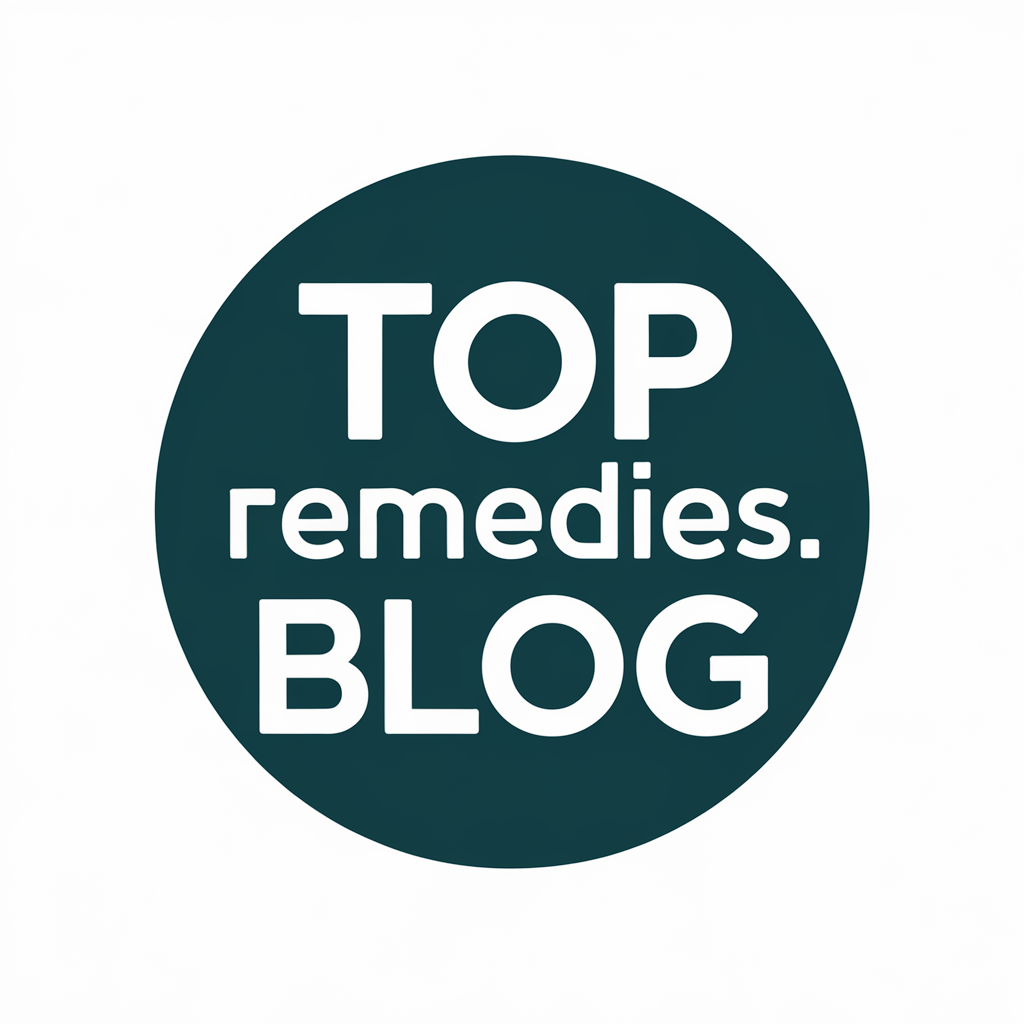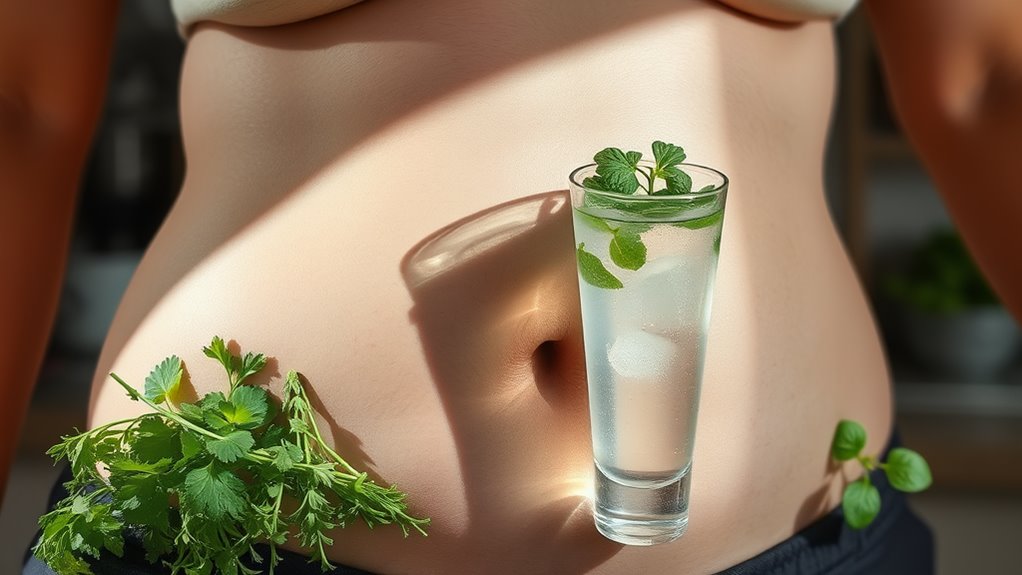Inflammation Making You Look Bloated. This Remedy Will Surprise You!
If inflammation is making you feel bloated, you’re not alone. Chronic inflammation disrupts your gut balance, leading to discomfort. Luckily, simple remedies can help. Ginger and turmeric tea can soothe inflammation, while peppermint oil relaxes your gut muscles. Incorporate fatty fish and leafy greens into your diet to combat inflammation, and stay hydrated for optimal digestion. Mindfulness meditation also helps reduce stress, which is key in managing inflammation. Discover more surprising strategies to ease your bloating.
Understanding Chronic Inflammation and Its Impact on Bloating
While you mightn’t realize it, chronic inflammation can significantly affect your digestive health, leading to uncomfortable bloating.
When your body faces persistent inflammation, it disrupts your gut’s balance, fostering an environment ripe for bloating. You might experience this discomfort due to an overactive immune response that exacerbates intestinal permeability and alters gut bacteria.
If you want to tackle the inflammation bloating fix, it’s crucial to understand the underlying processes. By addressing the root causes of inflammation, you can transform your digestive health.
This involves identifying food sensitivities, managing stress, and adopting a balanced lifestyle. By mastering these aspects, you’ll not only reduce bloating but also reclaim your overall well-being.
Understanding this connection is your first step toward effective solutions.
Natural Remedies to Combat Inflammation and Bloating
If you’re looking to alleviate inflammation and bloating naturally, several effective remedies can help restore balance to your gut health.
Start by incorporating ginger into your routine; its anti-inflammatory properties ease digestive discomfort.
Turmeric is another powerhouse; try a warm turmeric tea to reduce inflammation levels.
Additionally, consider using peppermint oil, which can relax your gastrointestinal muscles and relieve bloating.
Don’t overlook the benefits of probiotics; they support a healthy gut microbiome, reducing inflammation and bloating.
Lastly, stay hydrated—water helps flush out toxins and improve digestion.
By integrating these remedies into your daily life, you’ll empower your body to combat inflammation and enhance overall wellness.
Embrace these natural solutions and reclaim your comfort!
Dietary Changes for Reducing Inflammation
Making dietary changes can significantly impact your inflammation levels, as the foods you consume play a crucial role in your body’s response to inflammation. To effectively reduce inflammation, focus on incorporating anti-inflammatory foods while eliminating processed options.
Here’s a quick reference table to guide your dietary shifts:
| Anti-Inflammatory Foods | Foods to Avoid |
|---|---|
| Fatty fish (salmon, mackerel) | Processed sugars |
| Leafy greens (spinach, kale) | Refined carbohydrates |
| Berries (blueberries, strawberries) | Trans fats |
The Role of Mindfulness Meditation in Reducing Inflammation
In addition to dietary changes, incorporating mindfulness meditation into your routine can also help reduce inflammation. This practice encourages you to focus on the present moment, which can significantly lower stress levels.
When you reduce stress, you decrease the production of pro-inflammatory cytokines in your body. By dedicating just a few minutes each day to mindfulness, you cultivate an awareness that promotes relaxation and mental clarity.
Techniques such as deep breathing and body scanning enhance your connection between mind and body, further alleviating the inflammatory response. As you commit to this practice, you’ll likely notice improvements not only in your mental state but also in your physical health.
Embrace mindfulness meditation as a powerful tool in your anti-inflammatory arsenal.
Lifestyle Adjustments for a Bloat-Free Life
While many factors contribute to bloating, making small lifestyle adjustments can significantly alleviate discomfort and promote digestive health.
Start by evaluating your diet; prioritize whole foods and reduce processed items that can lead to inflammation. Stay hydrated—water aids digestion and helps flush out excess sodium.
Pay attention to portion sizes; eating smaller, more frequent meals can ease pressure on your digestive system. Incorporate regular physical activity—exercise stimulates digestion and reduces bloating.
Also, be mindful of eating habits; chew your food thoroughly and avoid talking while eating to minimize air intake.
Lastly, consider managing stress through techniques like yoga or deep breathing, as stress can exacerbate bloating.
These changes will empower you to achieve a bloat-free life and enhance overall well-being.
Frequently Asked Questions
Can Stress Alone Cause Chronic Inflammation and Bloating?
Yes, stress can trigger chronic inflammation and bloating in your body. When you’re stressed, your immune response activates, leading to inflammation. Managing stress effectively can help reduce these symptoms and promote overall well-being.
Are There Specific Foods That Trigger Inflammation in Everyone?
Certain foods like processed sugars, refined carbs, and trans fats can trigger inflammation in many people. While individual reactions vary, you should pay attention to your body’s responses and adjust your diet accordingly for optimal health.
How Long Does It Take to See Results From Natural Remedies?
You’ll typically start noticing results from natural remedies within a few days to a few weeks. Consistency’s key, so keep using them while paying attention to how your body responds for optimal effects.
Can Certain Medications Worsen Inflammation and Bloating Symptoms?
Yes, certain medications can indeed worsen inflammation and bloating symptoms. You should always review your medications with a healthcare professional, as they can help identify alternatives or adjustments to minimize these uncomfortable effects.
Is There a Connection Between Sleep Quality and Inflammation Levels?
Absolutely, better sleep quality reduces inflammation levels. When you prioritize restful sleep, your body recovers and regulates immune responses more effectively, ultimately lowering inflammation and promoting overall health. It’s crucial for your well-being.

